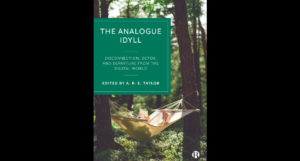Legal system fails to protect people from malicious copyright cases at the cost of sexual privacy, study warns

Age assurance measures are often poorly implemented, exposing children to inappropriate content, harmful products and services
Changes need to be made to the UK legal system to protect people from exploitative litigation designed to prey on vulnerabilities, a new study warns.
Reforms need to be made to protect adults from unfairness during copyright enforcement legal proceedings. This would also help to prevent children being exposed to adult pornography online.
The malicious litigation typically involves copyright holders or their agents of online pornographic works obtaining contact details of internet users via a court order to engage in mass letter writing campaigns demanding payment with the threat of potential court action.
The mere threat of litigation has forced some individuals to settle to avoid the intrusion into their sexual privacy, whether or not they have a legal case to answer.
The research says copyright infringement actions in pornographic works should be subject to more rigorous checks and balances. Sexual privacy should be protected by the courts for adults consuming lawful pornography. This will allow genuine copyright holders to enforce their copyright interest through bona fide actions, whilst deterring unscrupulous claimants.
The study by Professor Abhilash Nair and Professor James Griffin from the University of Exeter Law School, calls for a fundamental “reconceptualisation” of the right to privacy. During cases courts should do more to recognise and balance the sexual privacy rights of the alleged infringers of copyright in pornographic works with the interests of the right holders to ensure fair and equitable outcomes.
Professor Nair said: “My intention is not to prevent the enforcement of copyright altogether in pornographic works or to deter bona fide claims. There is a need to address the practice of speculative legal actions that target the embarrassment and sexual privacy of individuals to extract settlement.
“A fundamental lack of appreciation of sexual privacy at a conceptual level in the context of consumption of legal pornography is one of the main reasons why exploitative practices like speculative invoicing models continue to exist.”
“The current position is no longer tenable. Privacy generally, and sexual privacy in particular, deserves more recognition and consideration in court during copyright enforcement actions for pornographic works on the internet to ensure that the administration of the copyright balance remains in the hands of the legislature and courts, rather than in the hands of the speculative invoicer.”
The study says copyright should remain the appropriate regime for protecting pornographic works. However, the current enforcement regime for copyright is heavily imbalanced to the detriment of consumers of pornographic material online. Maintaining the status quo in this regard is no longer tenable.
The study recommends a new Practice Direction that clearly requires the consideration of sexual privacy in certain third-party disclosure applications for copyright infringement cases.
The Practice Direction should require that the interest of the copyright holder (or other interested third party) is to be balanced with the sexual privacy of the alleged infringer, where infringement is alleged of a pornographic work. In order that the process is meaningful and efficient, this should be carried out during third-party disclosure order proceedings before claimants are allowed to obtain the identity of the alleged infringers.
Section 171 of the CPDA 1988 should be amended to deter copyright enforcement of pornographic works that are unlawful to publish in the UK. The current copyright regime allows right holders to enforce copyright for pornography published in the UK without measures such as age verification in place to prevent children’s access, thereby rendering it obscene with respect to children and therefore unlawful to publish in the first instance. Only pornography that is both lawful to publish and for adults to consume should be eligible for copyright enforcement.



